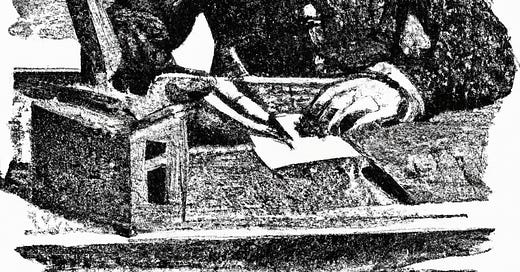François Fénelon: Salvation Ought to Be the Work of Everyday
Salvation is not to be achieved by wishing for it, but by seeking it heartily
Reading Fénelon's1 letter, I felt an immediate connection to the sense of urgency he gives to seeking our salvation each day. It's a sobering, yet energizing, contrast to the idea of salvation as a one-off event or something waiting for me in the afterlife. The more I journey along the Threefold Way, the more I appreciate this call to weave the quest for salvation into the very fabric of my daily life.
September 17, 1691
To The Comtesse de Gramont:
Most people spend the best part of their life in avowing and regretting their habits, in talking about changing them; in making rules for a future time which they look for, but which is not given them; and in thereby losing time which ought to be spent in good works and in setting forward their salvation.
You should treat all such notions as very dangerous.
Our salvation ought to be the work of every day and every hour. No time is fitter for it than that which God in His Mercy accords us now; and that because today is ours, but we know not what tomorrow may bring forth.
Salvation is not to be achieved by wishing for it, but by seeking it heartily. The uncertainty of life ought to make us realize that we should prosecute this undertaking with all our energies, and that all other pursuits are worthless, since they do not bring us nearer to God, the rightful End of all we do – the God of our salvation, as David continually calls Him in the Psalms.
Why do we make plans for advancing in perfection?
Because we believe it necessary to our salvation...2
Francois Fenelon was a French Catholic theologian, writer, and spiritual advisor. He was born in 1651, and is best known for his works such as The Adventures of Telemachus and the Maxims of the Saints. He was also a leader in the Quietist movement, which promoted a contemplative approach to faith and the cultivation of inner peace. He believed that the experience of religion comes from within and that God was present in every being. He died in 1715 and is remembered for his writings on inner peace and spirituality.
Fénelon François de Salignac de La Mothe-. The Spiritual Letters of Archbishop Fénelon: Letters to Women. Translated by H. L. Sidney Lear. London: Longmans, Green, 1894.




